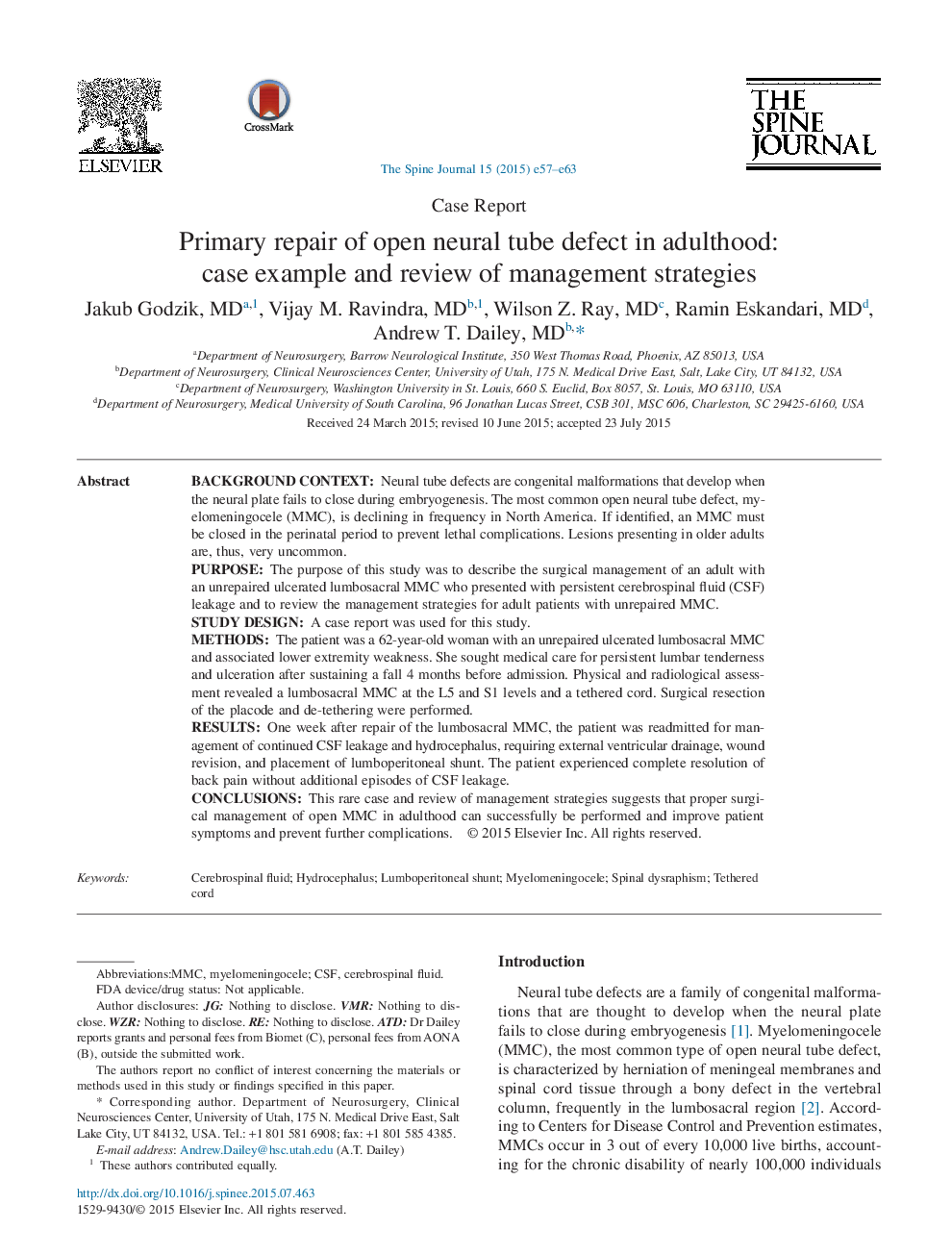| Article ID | Journal | Published Year | Pages | File Type |
|---|---|---|---|---|
| 6211868 | The Spine Journal | 2015 | 7 Pages |
Background ContextNeural tube defects are congenital malformations that develop when the neural plate fails to close during embryogenesis. The most common open neural tube defect, myelomeningocele (MMC), is declining in frequency in North America. If identified, an MMC must be closed in the perinatal period to prevent lethal complications. Lesions presenting in older adults are, thus, very uncommon.PurposeThe purpose of this study was to describe the surgical management of an adult with an unrepaired ulcerated lumbosacral MMC who presented with persistent cerebrospinal fluid (CSF) leakage and to review the management strategies for adult patients with unrepaired MMC.Study DesignA case report was used for this study.MethodsThe patient was a 62-year-old woman with an unrepaired ulcerated lumbosacral MMC and associated lower extremity weakness. She sought medical care for persistent lumbar tenderness and ulceration after sustaining a fall 4 months before admission. Physical and radiological assessment revealed a lumbosacral MMC at the L5 and S1 levels and a tethered cord. Surgical resection of the placode and de-tethering were performed.ResultsOne week after repair of the lumbosacral MMC, the patient was readmitted for management of continued CSF leakage and hydrocephalus, requiring external ventricular drainage, wound revision, and placement of lumboperitoneal shunt. The patient experienced complete resolution of back pain without additional episodes of CSF leakage.ConclusionsThis rare case and review of management strategies suggests that proper surgical management of open MMC in adulthood can successfully be performed and improve patient symptoms and prevent further complications.
